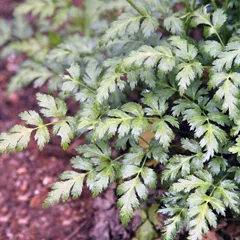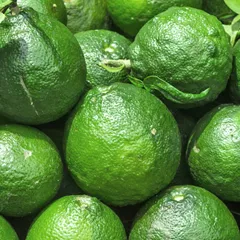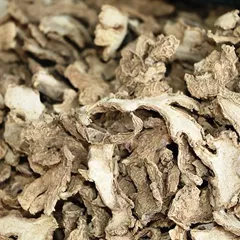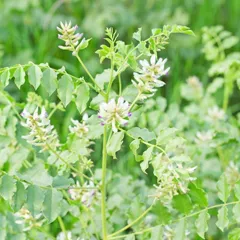Ulcerative colitis according to Chinese Medicine
The information provided here is not a replacement for a doctor. You shouldn't use it for the purpose of self-diagnosing or self-medicating but rather so you can have a more informed discussion with a professional TCM practitioner.
In Chinese Medicine, ulcerative colitis is sometimes associated with Heat and Blood Stagnation in the Lower Burner, a so-called "patterns of disharmony". Chinese Medicine sees the body as a system, not a sum of isolated parts. A "pattern" is when the system's harmony is disrupted. It is not equivalent to the Western concept of "disease" because both concepts arise from totally different ways of seeing the human body.
To understand whether someone's ulcerative colitis might be caused by the pattern Heat and Blood Stagnation in the Lower Burner, one needs to look for signs and symptoms associated with the pattern beyond what one might typically experience from ulcerative colitis alone. Indeed if ulcerative colitis is caused by Heat and Blood Stagnation in the Lower Burner, patients also experience symptoms such as lower abdominal pain, night fever, delirious speech and irritability. Similarly, patients with Heat and Blood Stagnation in the Lower Burner typically exhibit choppy (Se) or full (Shi) pulses.
We've listed below a more detailed description of Heat and Blood Stagnation in the Lower Burner so that you can have a better understanding of where ulcerative colitis might find its root according to Chinese Medicine.
Once identified, patterns are often treated using herbal formulas. Drinking herbal infusions is the most common remedy in Chinese Medicine, together with acupuncture. Here we detail below eight formulas that can help treat Heat and Blood Stagnation in the Lower Burner.
Heat and Blood Stagnation in the Lower Burner, a "pattern of disharmony" associated with ulcerative colitis

The Triple Burner is a so-called "Fu" Organ. Learn more about the Triple Burner in Chinese Medicine
Heat and Blood Stagnation in the Lower Burner
Pulse type(s): Choppy (Se), Full (Shi)
Recommended herbal formula: Tao He Cheng Qi Tang
Symptoms: Thirst Amenorrhea Night fever Irritability Dysmenorrhea Restlnessness Delirious speech Lower abdominal pain
Ulcerative colitis might be due to Heat and Blood Stagnation in the Lower Burner if the condition is paired with typical pattern symptoms such as lower abdominal pain, night fever, delirious speech and irritability. Similarly, patients with Heat and Blood Stagnation in the Lower Burner typically exhibit choppy (Se) or full (Shi) pulses.
Read more about Heat and Blood Stagnation in the Lower Burner here
The eight herbal formulas that might help with ulcerative colitis



The top herbs in Tao He Cheng Qi Tang are Peach Kernels (Tao Ren), Rhubarb (Da Huang) and Cinnamon Twigs (Gui Zhi)
Tao He Cheng Qi Tang
Source date: 220 AD
Number of ingredients: 5 herbs
Key actions: Dispels Heat and. Eliminates Blood Stagnation.
Why might Tao He Cheng Qi Tang help with ulcerative colitis?
Because it is a formula often recommended to help treat Heat and Blood Stagnation in the Lower Burner, a pattern sometimes associated with ulcerative colitis. If it looks like you might suffer from Heat and Blood Stagnation in the Lower Burner, this formula might help (although please seek confirmation with a professional practitioner beforehand).



The top herbs in Li Zhong Wan are Dried Ginger (Gan Jiang), Ginseng (Ren Shen) and Atractylodes Rhizomes (Bai Zhu)
Li Zhong Wan
Source date: 220 AD
Number of ingredients: 4 herbs
Key actions: Warms the Middle Burner. Strengthens the Spleen and Stomach.
Why might Li Zhong Wan help with ulcerative colitis?
Because it is a formula often recommended to help treat , a pattern sometimes associated with ulcerative colitis. If it looks like you might suffer from , this formula might help (although please seek confirmation with a professional practitioner beforehand).



The top herbs in Wu Mei Wan are Chinese Plums (Wu Mei), Sichuan Pepper (Hua Jiao) and Wild Ginger (Xi Xin)
Wu Mei Wan
Source date: 220 AD
Number of ingredients: 9 herbs
Key actions: Warms the Organs. Drains Heat. Calms roundworms. Drains the Liver. Calms the Stomach.
Why might Wu Mei Wan help with ulcerative colitis?
Because it is a formula often recommended to help treat , a pattern sometimes associated with ulcerative colitis. If it looks like you might suffer from , this formula might help (although please seek confirmation with a professional practitioner beforehand).



The top herbs in Wen Pi Tang are Prepared Aconite (Zhi Fu Zi), Rhubarb (Da Huang) and Dried Ginger (Gan Jiang)
Wen Pi Tang
Source date: 650 AD
Number of ingredients: 5 herbs
Key actions: Warms and tonifies the Spleen Yang. Clears Cold Evil.
Why might Wen Pi Tang help with ulcerative colitis?
Because it is a formula often recommended to help treat , a pattern sometimes associated with ulcerative colitis. If it looks like you might suffer from , this formula might help (although please seek confirmation with a professional practitioner beforehand).



The top herbs in Tao Hua Tang are Red Halloysite (Chi Shi Zhi), Dried Ginger (Gan Jiang) and Rice Sprouts (Jing Mi)
Tao Hua Tang
Source date: 220 AD
Number of ingredients: 3 herbs
Key actions: Warms the Middle. Dispels Cold. Binds up the bowels and stops dysenteric disorders.
Why might Tao Hua Tang help with ulcerative colitis?
Because it is a formula often recommended to help treat , a pattern sometimes associated with ulcerative colitis. If it looks like you might suffer from , this formula might help (although please seek confirmation with a professional practitioner beforehand).



The top herbs in Shao Yao Tang are Goldthread Rhizomes (Huang Lian), Baikal Skullcap Roots (Huang Qin) and White Peony Roots (Bai Shao)
Shao Yao Tang
Source date: 1186 AD
Number of ingredients: 9 herbs
Key actions: Regulates and harmonizes the Qi and Blood. Clears Heat. Dries dampness. Resolves Toxicity.
Why might Shao Yao Tang help with ulcerative colitis?
Because it is a formula often recommended to help treat , a pattern sometimes associated with ulcerative colitis. If it looks like you might suffer from , this formula might help (although please seek confirmation with a professional practitioner beforehand).



The top herbs in Wu Zhu Yu Tang are Evodia Fruits (Wu Zhu Yu), Fresh Ginger (Sheng Jiang) and Ginseng (Ren Shen)
Wu Zhu Yu Tang
Source date: 220 AD
Number of ingredients: 4 herbs
Key actions: Warms and tonifies the Liver and Stomach. Directs Rebellious Qi downward. Stops vomiting.
Why might Wu Zhu Yu Tang help with ulcerative colitis?
Because it is a formula often recommended to help treat , a pattern sometimes associated with ulcerative colitis. If it looks like you might suffer from , this formula might help (although please seek confirmation with a professional practitioner beforehand).



The top herbs in Xiao Cheng Qi Tang are Rhubarb (Da Huang), Houpu Magnolia Bark (Hou Pu) and Immature Bitter Oranges (Zhi Shi)
Xiao Cheng Qi Tang
Source date: 220 AD
Number of ingredients: 3 herbs
Key actions: Moderately purges Heat accumulation. Circulates Qi in the Middle .
Why might Xiao Cheng Qi Tang help with ulcerative colitis?
Because it is a formula often recommended to help treat , a pattern sometimes associated with ulcerative colitis. If it looks like you might suffer from , this formula might help (although please seek confirmation with a professional practitioner beforehand).
Symptoms related to ulcerative colitis
Lower abdominal pain Night fever Delirious speech Irritability Restlnessness Thirst Amenorrhea Dysmenorrhea






